-
 Bitcoin
Bitcoin $108,703.4836
0.45% -
 Ethereum
Ethereum $2,576.6839
1.58% -
 Tether USDt
Tether USDt $1.0001
0.00% -
 XRP
XRP $2.2924
-0.87% -
 BNB
BNB $660.2136
0.01% -
 Solana
Solana $151.4729
-0.29% -
 USDC
USDC $1.0000
0.00% -
 TRON
TRON $0.2866
0.04% -
 Dogecoin
Dogecoin $0.1698
0.82% -
 Cardano
Cardano $0.5831
0.13% -
 Hyperliquid
Hyperliquid $37.9814
-3.97% -
 Bitcoin Cash
Bitcoin Cash $503.9489
1.93% -
 Sui
Sui $2.8994
0.74% -
 Chainlink
Chainlink $13.5429
0.38% -
 UNUS SED LEO
UNUS SED LEO $9.0693
-0.19% -
 Stellar
Stellar $0.2524
0.15% -
 Avalanche
Avalanche $18.1959
1.02% -
 Shiba Inu
Shiba Inu $0.0...01180
1.48% -
 Toncoin
Toncoin $2.7601
-0.76% -
 Hedera
Hedera $0.1606
0.96% -
 Litecoin
Litecoin $86.6105
0.26% -
 Monero
Monero $315.7691
-0.56% -
 Polkadot
Polkadot $3.3911
0.25% -
 Dai
Dai $1.0001
0.03% -
 Ethena USDe
Ethena USDe $1.0002
0.02% -
 Bitget Token
Bitget Token $4.3076
-0.05% -
 Uniswap
Uniswap $7.5901
3.66% -
 Aave
Aave $288.0954
0.35% -
 Pepe
Pepe $0.0...01002
1.64% -
 Pi
Pi $0.4578
0.09%
how to create gate io wallet
Gate.io's "wallet" is your exchange account; secure it with strong passwords and 2FA. Withdrawal fees and network delays exist; long-term storage on Gate.io is risky; consider a hardware wallet for enhanced security.
Mar 25, 2025 at 12:56 pm
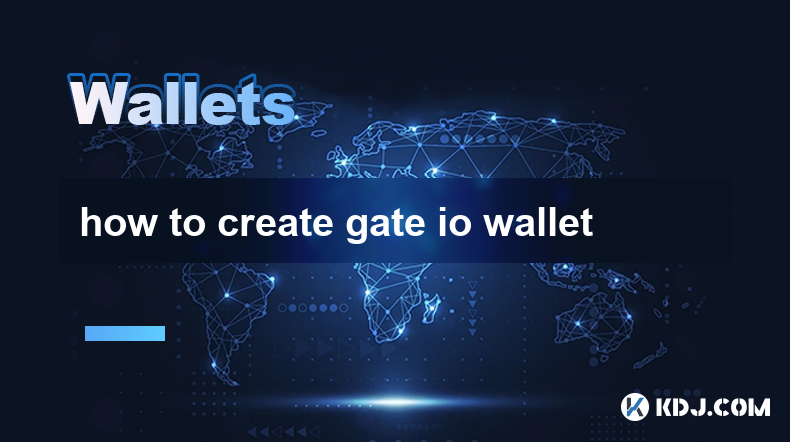
Key Points:
- Gate.io doesn't offer a standalone wallet app like many other exchanges. Your Gate.io "wallet" is actually your account on their platform.
- Security relies heavily on strong password practices and two-factor authentication (2FA).
- Withdrawal of cryptocurrencies requires understanding network fees and potential delays.
- Storing significant amounts of cryptocurrency long-term on any exchange is generally discouraged for security reasons. Consider using a hardware wallet for offline storage.
- Understanding the different types of cryptocurrencies supported by Gate.io is crucial before attempting to deposit or withdraw.
How to Create a "Gate.io Wallet" (Managing Your Gate.io Account)
Gate.io doesn't provide a separate downloadable wallet application in the traditional sense. Your "wallet" on Gate.io is simply your account on their exchange platform. This means your cryptocurrencies are held within Gate.io's systems. While convenient for trading, this method carries inherent security risks compared to self-custody solutions.
Creating Your Gate.io Account:
The first step in managing your cryptocurrency on Gate.io is creating an account. This involves visiting the Gate.io website and clicking the "Sign Up" or equivalent button. You'll need to provide an email address and create a strong, unique password. Remember to follow Gate.io's verification processes, which may include email confirmation and potentially phone verification. Failing to complete these steps may limit your account functionality.
Securing Your Gate.io Account:
Robust security is paramount. After creating your account, immediately enable two-factor authentication (2FA). This adds an extra layer of security, requiring a code from your phone or authenticator app in addition to your password. Choose a strong, unique password that isn't used for any other online accounts. Consider using a password manager to help you generate and securely store complex passwords. Avoid using public Wi-Fi when accessing your account.
Depositing Cryptocurrency into Your Gate.io Account:
Depositing cryptocurrency involves navigating to your Gate.io account's deposit section. You'll select the specific cryptocurrency you wish to deposit. Gate.io will provide you with a unique deposit address. It is crucial to double-check this address before sending any funds. Sending cryptocurrency to the wrong address can result in irreversible loss of funds. Note that some cryptocurrencies may have network fees associated with deposits.
Understanding Network Fees and Deposit Times:
Network fees (also known as transaction fees or gas fees) are charges levied by the blockchain network for processing transactions. These fees vary depending on the cryptocurrency and network congestion. Deposit times can also vary considerably. Some cryptocurrencies may be credited to your account instantly, while others may take several minutes or even hours to confirm. Always check the status of your deposit on the Gate.io platform.
Withdrawing Cryptocurrency from Your Gate.io Account:
Withdrawing cryptocurrency is similar to depositing, but in reverse. You'll select the cryptocurrency you want to withdraw and enter the recipient's address. Again, double-check the address before confirming the withdrawal. Gate.io will likely charge a withdrawal fee, and network fees may also apply. Be aware of the minimum withdrawal amounts for each cryptocurrency. Withdrawal processing times can vary, just as with deposits.
Choosing the Right Cryptocurrency on Gate.io:
Gate.io supports a wide range of cryptocurrencies. Before attempting to deposit or withdraw any cryptocurrency, ensure it's listed and supported on the platform. Each cryptocurrency has its own unique characteristics, such as transaction speeds and fees. Researching the specific cryptocurrency you're interested in is essential before engaging in any transactions. Understand the risks involved before investing in any cryptocurrency.
Why a Separate Hardware Wallet is Recommended for Long-Term Storage:
While Gate.io offers a convenient platform for trading, storing significant amounts of cryptocurrency on any exchange for extended periods is risky. Exchanges are potential targets for hackers, and if the exchange is compromised, your funds could be lost. A hardware wallet provides a more secure solution for long-term storage, as your private keys are kept offline and protected from online threats.
Frequently Asked Questions:
Q: Is my Gate.io account truly a "wallet"?
A: No, your Gate.io account is not a wallet in the traditional sense. It's an account on their exchange, meaning your crypto is held by Gate.io, not in a wallet you control directly.
Q: How secure is Gate.io?
A: Gate.io employs various security measures, but no exchange is entirely immune to hacking. The security of your account depends largely on your own security practices, such as strong passwords and 2FA.
Q: What happens if I lose access to my Gate.io account?
A: Gate.io has account recovery procedures, but the process can be complex. It's crucial to secure your account details and enable 2FA to minimize the risk of losing access.
Q: Are there fees for depositing and withdrawing cryptocurrency on Gate.io?
A: Yes, Gate.io may charge withdrawal fees, and network fees (transaction fees) are often associated with both deposits and withdrawals. These fees vary depending on the cryptocurrency.
Q: How long does it take to deposit and withdraw cryptocurrency?
A: Transaction times depend on the cryptocurrency and network congestion. Some transactions are near-instant, while others can take hours or even longer to confirm.
Q: What cryptocurrencies does Gate.io support?
A: Gate.io supports a vast number of cryptocurrencies. Check their website for the most up-to-date list of supported assets. The availability of cryptocurrencies can change over time.
Disclaimer:info@kdj.com
The information provided is not trading advice. kdj.com does not assume any responsibility for any investments made based on the information provided in this article. Cryptocurrencies are highly volatile and it is highly recommended that you invest with caution after thorough research!
If you believe that the content used on this website infringes your copyright, please contact us immediately (info@kdj.com) and we will delete it promptly.
- BlockDAG Scores Big with Sports Deals, While Toncoin Price Aims High and PEPE Feels the Pinch
- 2025-07-09 07:10:12
- Bitcoin, Fox Business, and Scarcity: A Wild West Gold Rush?
- 2025-07-09 06:50:12
- Cryptos Bullish Setup: Is Ripple (XRP) Ready for a Massive Rally?
- 2025-07-09 06:50:12
- Tether, Crystal Intelligence, and Stablecoin Oversight: A New Era of Transparency?
- 2025-07-09 07:10:12
- BioSig, Gold Tokenization, and Financing: A New Gold Rush?
- 2025-07-09 07:15:12
- Hedera Price Breakout Watch: Will HBAR Rally to $0.17?
- 2025-07-09 07:50:12
Related knowledge
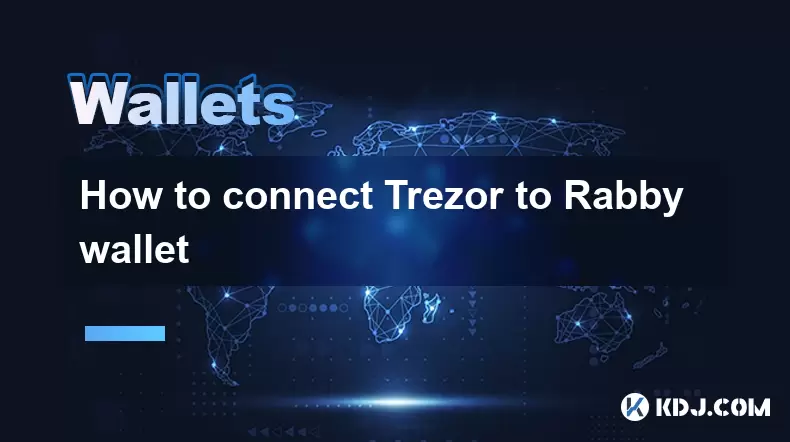
How to connect Trezor to Rabby wallet
Jul 09,2025 at 05:49am
What Is Trezor and Rabby Wallet?Trezor is a hardware wallet developed by SatoshiLabs that allows users to securely store their cryptocurrency assets o...
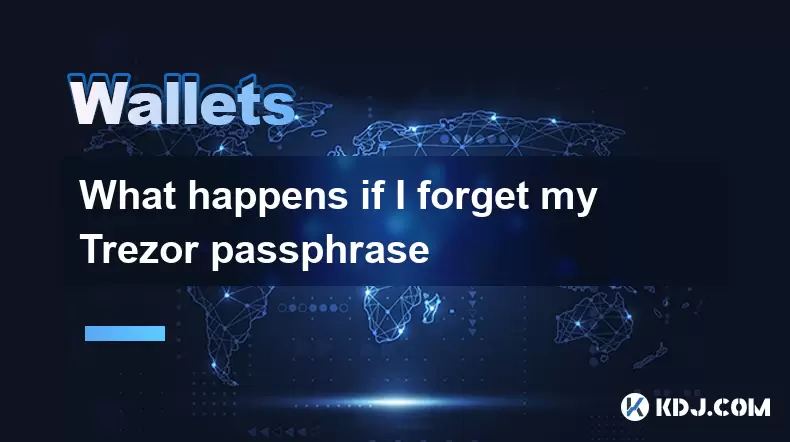
What happens if I forget my Trezor passphrase
Jul 09,2025 at 03:15am
Understanding the Role of a Trezor PassphraseIf you use a Trezor hardware wallet, you may have set up a passphrase as an extra layer of security beyon...
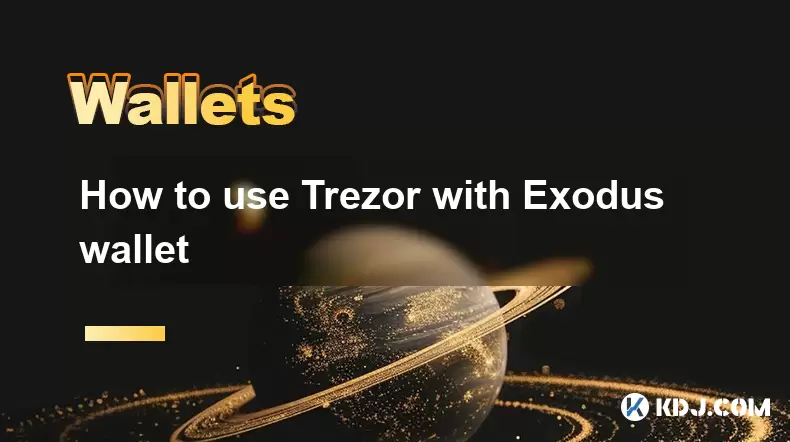
How to use Trezor with Exodus wallet
Jul 09,2025 at 12:49am
Connecting Trezor Hardware Wallet to Exodus Software WalletTo use Trezor with Exodus wallet, users need to connect the hardware wallet to the software...
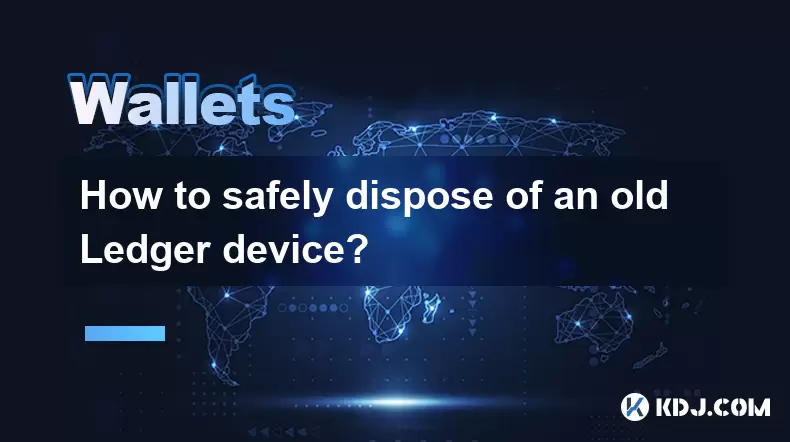
How to safely dispose of an old Ledger device?
Jul 09,2025 at 06:57am
Understanding the Risks of Disposing of a Ledger DeviceWhen you decide to dispose of an old Ledger device, it's important to understand that this is n...
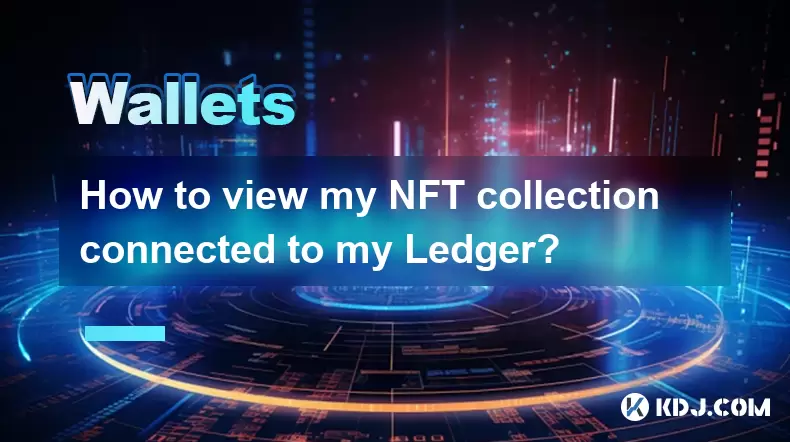
How to view my NFT collection connected to my Ledger?
Jul 09,2025 at 07:35am
Understanding NFTs and Ledger Wallet IntegrationNon-Fungible Tokens (NFTs) have become a popular way to represent ownership of digital assets on the b...
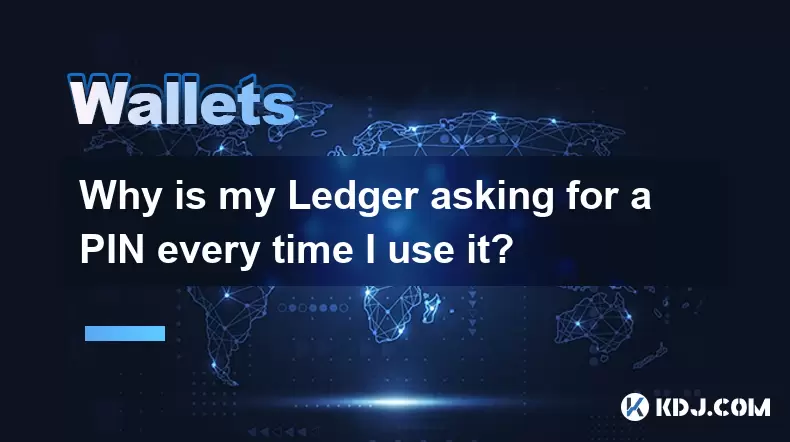
Why is my Ledger asking for a PIN every time I use it?
Jul 08,2025 at 11:21pm
Understanding the Purpose of the PIN on Your Ledger DeviceThe PIN (Personal Identification Number) is a crucial security feature built into every Ledg...

How to connect Trezor to Rabby wallet
Jul 09,2025 at 05:49am
What Is Trezor and Rabby Wallet?Trezor is a hardware wallet developed by SatoshiLabs that allows users to securely store their cryptocurrency assets o...

What happens if I forget my Trezor passphrase
Jul 09,2025 at 03:15am
Understanding the Role of a Trezor PassphraseIf you use a Trezor hardware wallet, you may have set up a passphrase as an extra layer of security beyon...

How to use Trezor with Exodus wallet
Jul 09,2025 at 12:49am
Connecting Trezor Hardware Wallet to Exodus Software WalletTo use Trezor with Exodus wallet, users need to connect the hardware wallet to the software...

How to safely dispose of an old Ledger device?
Jul 09,2025 at 06:57am
Understanding the Risks of Disposing of a Ledger DeviceWhen you decide to dispose of an old Ledger device, it's important to understand that this is n...

How to view my NFT collection connected to my Ledger?
Jul 09,2025 at 07:35am
Understanding NFTs and Ledger Wallet IntegrationNon-Fungible Tokens (NFTs) have become a popular way to represent ownership of digital assets on the b...

Why is my Ledger asking for a PIN every time I use it?
Jul 08,2025 at 11:21pm
Understanding the Purpose of the PIN on Your Ledger DeviceThe PIN (Personal Identification Number) is a crucial security feature built into every Ledg...
See all articles

























































































